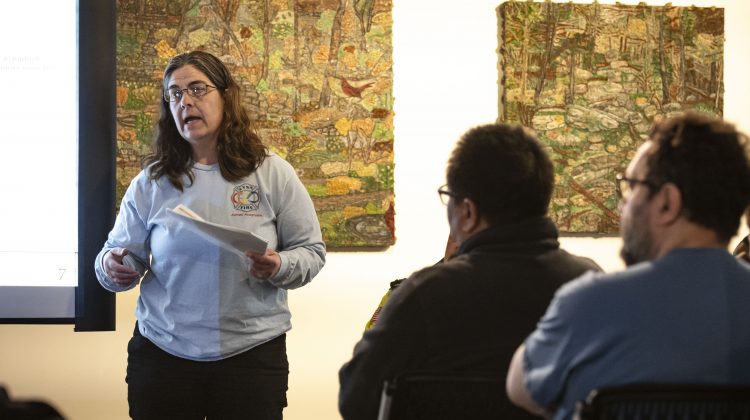LYNN—Opioid overdose-related deaths decreased by 40% in 2023 according to a report published by the Massachusetts Department of Public Health.
This decline follows a 10% state-wide decrease in overall opioid overdose-related deaths in 2023 announced last week, which is the largest single year decline in a decade, according to DPH. In context, in 2022 there were 75 opioid overdose related deaths and 45 in 2023 in Lynn among residents of Massachusetts, according to the report.
Lynn has not seen a decrease in opioid overdose related deaths since 2020. From 2019 to 2020, the number of deaths decreased by 14%.
Candice McCory, the Public Health Division’s opioid prevention specialist, said some of the actions the City of Lynn has taken to mitigate opioid overdoses is increasing opioid education, expanding community access to naloxone, and providing more opportunities for narcan training.
She said Lynn has “really great resources as far as overdoses go.”
“Whoever would like Narcan training, we’re always willing to supply them with the Narcan and then give them education on what an overdose looks like and how to respond,” she said.
Another resource she has seen people taking advantage of is harm reduction training. She said there are two available centers that offer harm reduction training in Lynn, Healthy Streets on Willow St and Lake Community Health on Union St.
She added the naloxone cabinets the division has located across the city have been “very successful,” adding the division has given away more than 100 doses of Narcan for free through the resource.
The city has naloxone cabinets located on the corner of Western Ave and Light St, at Lynn Commons, at the Corner of Broad St and Cherry St, and Liberty St and Central Ave, and Mt. Vernon St.
McCory also emphasized the importance of the work of the opioid working group, which is a group that provides recommendations to the Mayor’s office on how to direct an abatement fund toward appropriate means of opioid overdose prevention.
She added there is currently a survey publicly available online for community members to provide input on how the opioid abatement fund should allocate the money.
“The city has tons of resources for people that are active, using, pre-contemplation or in recovery,” McCory said. “If people need those resources, please reach out.”
In the report, DPH listed Lynn as seeing a significant decrease in opioid related overdose deaths along with Brockton, Cambridge, Falmouth, Lawrence, Leominster, Pittsfield, Randolph, Waltham, and Wareham.
In a statement to The Item, Mayor Jared Nicholson said the number of opioid overdoses in the city was “still tragically high.”
However, he added “the decrease in the number of deaths last year is certainly heartening, representing real progress that’s worth noting. I’m grateful to our public health team, first responders, and many community partners who work with us to help our residents with prevention.”
Visit the City’s public health website to learn more about the resources available for those with substance use disorder. https://www.lynnma.gov/city_government/departments/publichealth
SAMHSA National Helpline: 1-800-662-HELP (4357)

